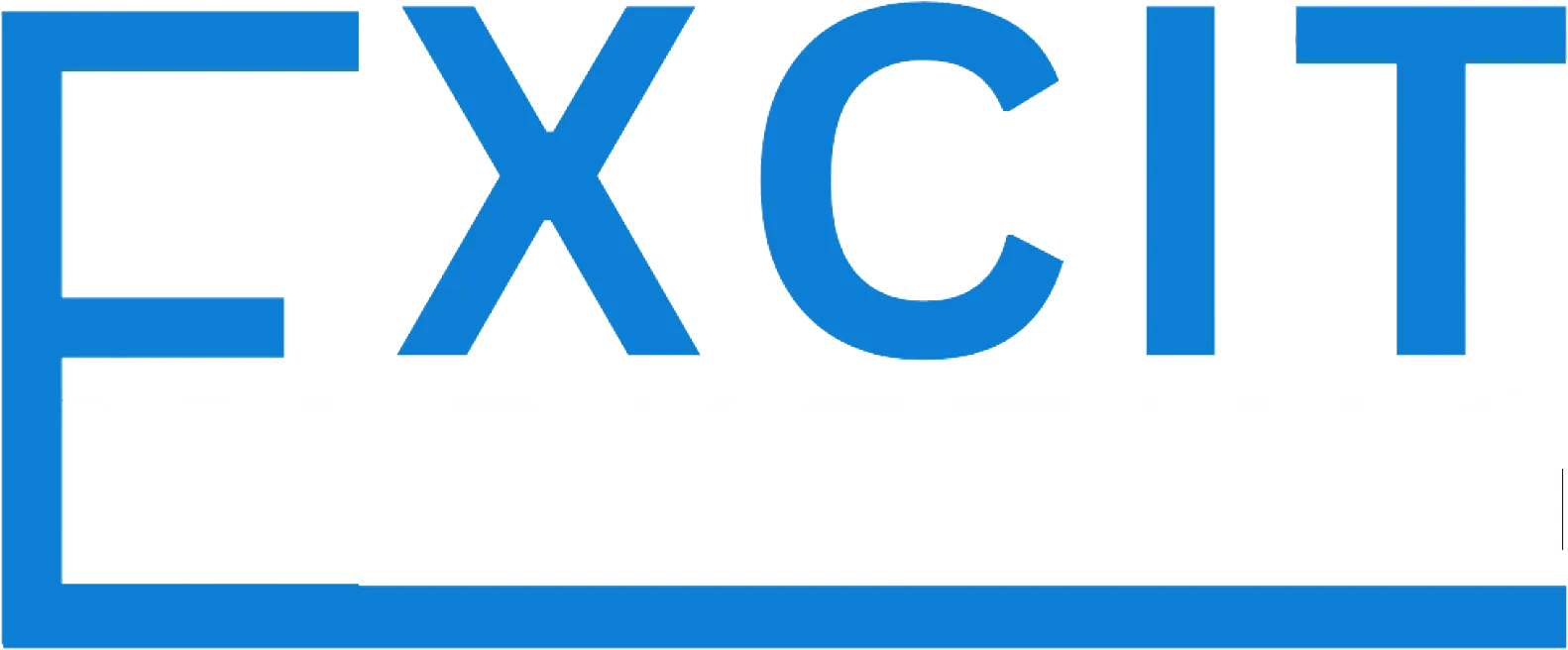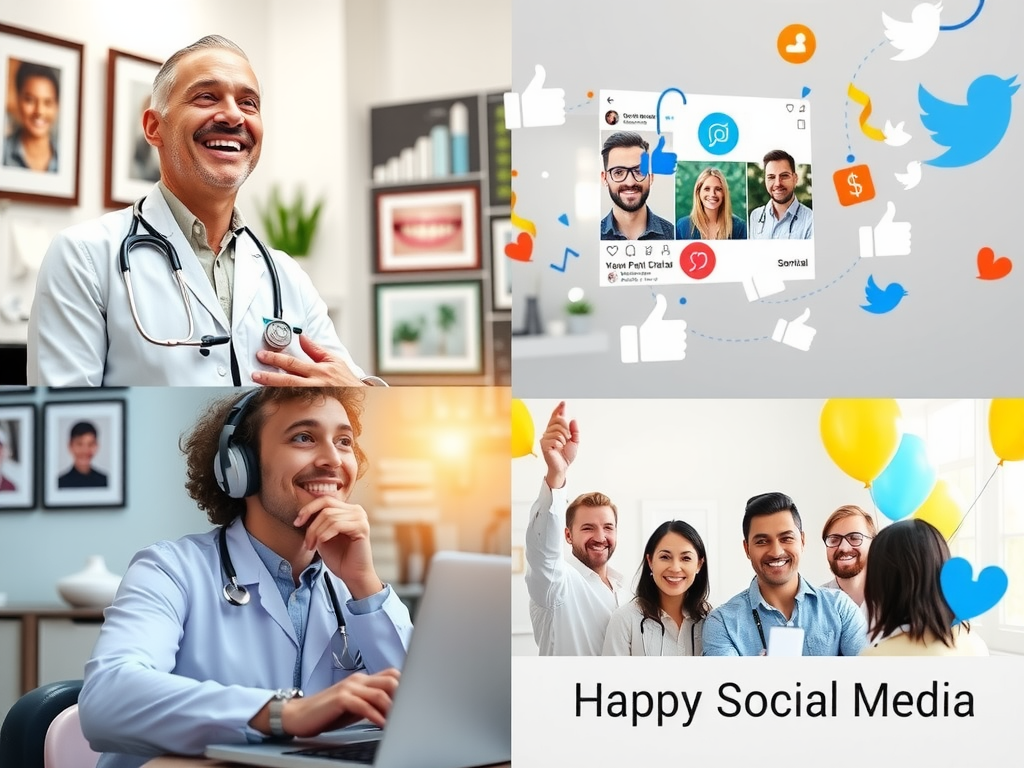Prefer to Listen Click Below!
Establishing robust communication strategies enhances the growth of dental practices. Effective patient engagement often leads to improved health outcomes and increased loyalty.
Social media platforms, including Facebook and Instagram, present unique opportunities for dentists to connect directly with their patients.
Research indicates that practices leveraging social media for networking frequently report heightened levels of patient retention.
These platforms also enable the dissemination of important health care information, fostering an educated patient community. Engaging posts and interactive content contribute to a sense of belonging, which significantly enhances the patient experience.
The integration of professional marketing services, such as those offered by Excit Marketing, can streamline social media efforts, ensuring consistent engagement and outreach. By prioritizing these strategies, dental professionals can cultivate stronger relationships, which ultimately benefit patient engagement and enhance communication through effective use of social media platforms like Instagram and LinkedIn for networking and marketing in health care.
Ways To Utilize Social Media For Patient Engagement
Engaging with patients through modern communication methods has transformed the way healthcare professionals build relationships. Social media serves as an effective tool for fostering connections by utilizing unique features across various platforms.
For instance, Facebook groups can serve as a space for patients to share experiences and seek advice, while Instagram is ideal for disseminating infographics that simplify complex health education.
These visuals can help clarify medical concepts, thus enhancing patient understanding.
Twitter’s interactive elements, such as polls, provide insights into patient preferences and interests, allowing for tailored content that resonates with the target audience. These engagement techniques not only strengthen bonds between healthcare providers and patients but also facilitate real-time feedback that can refine service delivery.
Tracking data and analytics is crucial for evaluating the success of these strategies, ensuring continuous improvement within the healthcare industry.

Building A Stronger Community Through Digital Communication
Effective interaction within communities has transformed significantly through modern channels. Messaging platforms facilitate the immediate exchange of ideas, promoting connectivity among members while encouraging real-time discussions.
Online forums and social networks serve as environments where individuals can delve into pertinent issues, enhancing patient engagement in various contexts.
Video conferencing tools enable conversations that can foster deeper relationships and build trust within the community.
Encouraging feedback through transparent practices not only improves loyalty but also amplifies the voices of diverse groups. Accessibility in communication benefits all members and strengthens overall engagement, ensuring that no voice goes unheard.
Embracing these communication tools can lead to a more inclusive atmosphere, paving the way for positive relationships among healthcare providers and their communities.
| Communication Tool | Benefits |
|---|---|
| Messaging Platforms | Facilitates immediate exchange of ideas |
| Online Forums | Enhances patient engagement on pertinent issues |
| Video Conferencing | Fosters deeper relationships and builds trust |
| Transparent Feedback Practices | Amplifies diverse voices and improves loyalty |
The Impact Of Social Media On Patient Education
Accessing and sharing health-related information has undergone a transformative shift due to digital platforms. These tools serve as a bridge, allowing for the exchange of updated health information in real-time between healthcare providers and patients.
A significant statistic reveals that over 80% of internet users have sought health information online, with social media becoming a vital source for this content.
Healthcare professionals increasingly leverage platforms like LinkedIn to disseminate knowledge, enhancing their visibility and credibility within the field.
Such engagement not only improves patient care but also fosters a deeper connection between providers and their target audience.
Numerous case studies illustrate the role of social media in fostering peer support among patients. Online health communities have emerged where individuals can share experiences and find emotional support.
Research indicates that patients who actively engage in these platforms often report better health information retention and greater satisfaction with their care. This highlights the importance of leveraging social media effectively in healthcare to enhance patient care by utilizing platforms like LinkedIn to reach the target audience with engaging infographics and real-time health information, ultimately shaping a comprehensive social media strategy for networking and promoting the vital role of social media in the industr
Best Practices For Engaging Patients Online
Implementing effective strategies to connect with patients online requires a thoughtful use of technology. Personalization techniques significantly enhance the experience of individuals seeking healthcare information.
By utilizing patient data, healthcare professionals can customize their communications, directly impacting patient satisfaction.
Segmentation of audiences according to demographics ensures that each type of patient receives targeted education, making social media for patient engagement more impactful.
Measurement tools are key to assessing the effectiveness of these engagement strategies. Analytics instruments can track significant metrics, such as interaction levels, providing insights into social media use patterns.
Conducting regular surveys allows for the evaluation of patient experiences, offering valuable feedback that can guide improvements in social media management.
Innovative strategies, including gamification, offer unique ways to boost participation.
Incorporating interactive elements not only makes information more engaging but also enhances the overall patient experience. Live Q&A sessions can serve as a powerful tool for healthcare professionals to enhance patient engagement and education through effective social media management, while also addressing patient privacy concerns to ultimately improve patient satisfaction in the digital age.
Patient Engagement Strategies
- Personalization techniques can significantly enhance patient satisfaction by tailoring communications based on individual patient data.
- Audience segmentation by demographics ensures targeted education, making social media engagement more effective.
- Measurement tools, such as analytics and surveys, are crucial for evaluating the success of engagement strategies and improving patient experiences.
- Innovative methods like gamification and Live Q&A sessions enhance interactivity, boosting patient participation and education.
Leveraging Instagram For Health Awareness
Utilizing visual platforms can significantly enhance the dissemination of health information. With over one billion users on this social media site, many individuals actively seek reliable educational content pertinent to their well-being.
High-quality visuals not only capture audience attention but also contribute to improved health outcomes, fostering a deeper understanding of various health issues.
Engaging patients through compelling imagery and informative posts proves to be an effective communication strategy.
Influencer partnerships can amplify these messages, reaching new demographics and encouraging healthier behaviors. The importance of hashtags cannot be overlooked, as they facilitate discoverability and connect users to relevant posts.
By implementing these strategies consistently, social media engagement can be optimized, subsequently building a more informed community. Transitioning to the next platform, LinkedIn offers unique strategies for effective patient interaction that can further bolster health awareness initiatives.
Strategies For Effective Patient Interaction On LinkedIn
Effective communication is paramount for healthcare professionals seeking to establish meaningful connections with their patient populations. Engaging in focused groups within the healthcare industry allows experts to identify networking opportunities that can enhance interactions.
Connecting with patient advocates through this platform can amplify outreach and improve patient engagement by facilitating the sharing of information and personal experiences.
Professionals can actively participate in relevant discussions, which fosters credibility and enhances trust within the community.
Utilizing multimedia resources for social media can aid in conveying complex information clearly, making it more accessible to social media users interested in health topics. Mastering different professional communication styles is key to ensuring messages resonate effectively, thereby improving patient engagement.
The Role Of Infographics In Patient Information Sharing
Visual representations of information serve as an effective method for sharing intricate health-related details. These graphics play an important role in enabling new patients to grasp essential concepts swiftly and clearly.
Historical evidence suggests that the inclusion of visuals in medical education has deep roots, evolving from early illustrations to contemporary design practices that enhance understanding.
Effective communication in healthcare relies on creating accessible materials that foster retention.
Research indicates that individuals often remember visual information more effectively than written content. Engaging with patients on social media can significantly broaden the dissemination of these visuals, ensuring that the information shared reaches a larger audience.
Introduction to Infographics in Healthcare
Infographics in healthcare are defined as visual representations of information designed to facilitate patient education.
Their purpose is to simplify complex medical topics, making them more accessible to patients on social media. Historically, visual communication has played a crucial role in the healthcare sector, particularly as health professionals recognize that social media is a powerful tool for engaging with patients, disseminating patient information rapidly, and establishing a robust social media presence to attract new patients.
Overcoming Misinformation In The Healthcare Industry.
The circulation of incorrect health information can significantly impact patient care and decision-making processes. Social media makes it easier than ever for unverified claims related to health issues to gain traction quickly, often leading individuals to rely on unreliable sources for health advice.
Initiatives aimed at improving health literacy serve to empower the patient population to make informed decisions regarding their health.
Effective educational campaigns play a pivotal role in raising awareness about trustworthy information and foster a culture of critical thinking.
Healthcare providers should utilize technology to connect with patients and bridge the gaps formed by misinformation. Research published in peer-reviewed journals remains a cornerstone of community education, disseminating accurate health information needed to navigate the complexities of modern healthcare.
Strategies for addressing misinformation encompass establishing clear social media policies that guide healthcare professionals in their online interactions. Encouraging collaborations with credible organizations can enhance the dissemination of accurate information. This partnership aims to enhance social media’s role in today’s digital age by connecting with a broader audience, helping to ensure that social media policies are in place to make informed decisions, as social media also provides valuable insights into the online patient population and the needs of patients but also fosters a stronger connection with them.
Health Information Misinformation
- Social media enables rapid spread of unverified health claims, impacting patient decision-making.
- Improving health literacy empowers patients to make informed health choices.
- Collaborations with credible organizations enhance the dissemination of accurate health information.
- Research from peer-reviewed journals is essential for community education on health issues.







